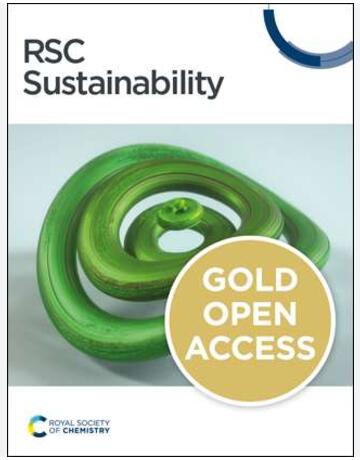能源社区的 BESS 储备优化
IF 3.3
3区 环境科学与生态学
Q2 ENVIRONMENTAL SCIENCES
引用次数: 0
摘要
本文研究如何优化电池储能系统(BESSs),以增强本地能源市场(LEMs)的商业模式。地方能源市场是一种分散的能源生态系统,可促进消费者、生产者和消费者之间的点对点能源交易。通过激励本地能源交换和平衡供需,本地能源市场有助于提高电网的复原力和可持续性。本研究利用先进的人工智能技术,如多层感知器神经网络和极梯度提升回归器,提出了一种优化 BESS 的新方法。这些模型能准确预测能源消耗,并在 LEM 框架内优化 BESS 储备分配。研究结果表明,这些人工智能驱动的策略具有改善 BESS 储备容量设置的潜力。这种优化设置将以满足能源共同体站点所有者的需求为目标,并避免配电系统运营商因未满足合同条件而罚款。本文章由计算机程序翻译,如有差异,请以英文原文为准。
BESS Reserve Optimisation in Energy Communities
This paper investigates optimising battery energy storage systems (BESSs) to enhance the business models of Local Energy Markets (LEMs). LEMs are decentralised energy ecosystems facilitating peer-to-peer energy trading among consumers, producers, and prosumers. By incentivising local energy exchange and balancing supply and demand, LEMs contribute to grid resilience and sustainability. This study proposes a novel approach to BESS optimisation, utilising advanced artificial intelligence techniques, such as multilayer perceptron neural networks and extreme gradient boosting regressors. These models accurately forecast energy consumption and optimise BESS reserve allocation within the LEM framework. The findings demonstrate the potential of these AI-driven strategies to improve the BESS reserve capacity setting. This optimal setting will target meeting Energy Community site owners’ needs and avoiding fines from the distribution system operator for not meeting contract conditions.
求助全文
通过发布文献求助,成功后即可免费获取论文全文。
去求助
来源期刊

Sustainability
ENVIRONMENTAL SCIENCES-ENVIRONMENTAL SCIENCES
CiteScore
6.80
自引率
20.50%
发文量
14120
审稿时长
17.72 days
期刊介绍:
Sustainability (ISSN 2071-1050) is an international and cross-disciplinary scholarly, open access journal of environmental, cultural, economic and social sustainability of human beings, which provides an advanced forum for studies related to sustainability and sustainable development. It publishes reviews, regular research papers, communications and short notes, and there is no restriction on the length of the papers. Our aim is to encourage scientists to publish their experimental and theoretical research relating to natural sciences, social sciences and humanities in as much detail as possible in order to promote scientific predictions and impact assessments of global change and development. Full experimental and methodical details must be provided so that the results can be reproduced.
 求助内容:
求助内容: 应助结果提醒方式:
应助结果提醒方式:


